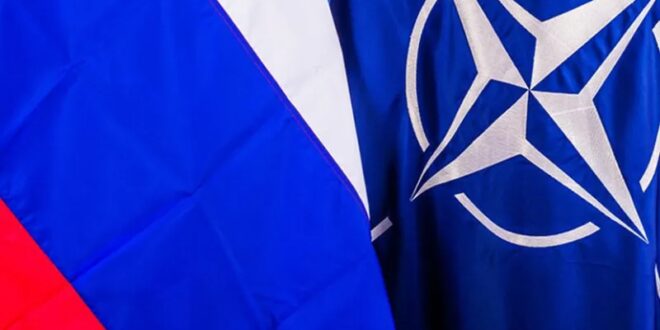NATO said Tuesday that Secretary-General Jens Stoltenberg has scheduled a meeting next week between Western ambassadors and Russian officials to try to defuse tensions over Moscow’s troop buildup along Ukraine’s eastern border with Russia.
The NATO-Russia Council meeting is set for January 12 in Brussels, two days after U.S. and Russian officials open bilateral security talks in Geneva.
Western allies fear that Moscow, which has amassed 100,000 troops along Ukraine’s eastern flank, is preparing to invade the one-time Soviet republic. Russia is seeking assurances that NATO won’t accede to Ukraine’s request for membership in the West’s military alliance and will pull back its military involvement in central and eastern Europe.
NATO—now with 30 countries, including the United States, Canada and 28 in Europe—said its foreign ministers would hold a video conference on Friday in preparation for next week’s meetings with Moscow.
U.S. President Joe Biden has rejected a military response in the event of a Russian invasion of Ukraine but told Russian President Vladimir Putin the U.S. and its allies would impose significant economic sanctions far beyond what they levied when Russia annexed Ukraine’s Crimean Peninsula in 2014 if Russia launches an attack.
The U.S. has been dispatching small arms and ammunition to Ukraine, along with Javelin missiles it says should be used only in defense.
The Kremlin said last week that Putin warned Biden that new U.S. sanctions on Russia could lead to a complete rupture in Washington-Moscow relations.
In next week’s talks with Moscow, State Department spokesman Ned Price said Tuesday the U.S. is pursuing the “path of diplomacy,” and looking “to determine whether the Russians are equally serious about that path. The path of diplomacy and de-escalation … and confidence-building measures, or potential confidence-building measures, will be a topic of conversation in these various engagements.”
A NATO official said of the January 12 meeting that “any dialogue with Russia would have to proceed on the basis of reciprocity, address NATO’s concerns about Russia’s actions … and take place in consultation with NATO’s European partners.”
Maria Zakharova, Russia’s Foreign Ministry spokeswoman, confirmed that Russian officials will attend the NATO-Russia Council meeting in Brussels.
Russian Deputy Foreign Minister Sergei Ryabkov and other senior Russian officials are expected to attend the Brussels talks, after meeting U.S. Deputy Secretary of State Wendy Sherman in Geneva.
On January 13, talks will continue in the broader format of the Vienna-based Organization for Security and Cooperation in Europe, which includes the United States and its NATO allies, as well as Russia, Ukraine and other former Soviet states.
Josep Borrell, the European Union’s top diplomat, flew to Ukraine on Tuesday for a two-day trip to show support for Kyiv. Biden and other U.S. officials have also assured Ukraine of their support in the standoff with Moscow.
Borrell, who was central to the EU’s strategy of increased sanctions on top Russian officials in 2021, believes “the EU cannot be a neutral spectator in the negotiations if Russia really wants to discuss Europe’s security architecture,” according to an EU spokesperson.
The European Union sees Ukraine as a “strategic partner,” the spokesperson said.
Borrell, accompanied by Ukrainian Foreign Minister Dmytro Kuleba, will visit Ukraine’s front line with Russian-backed separatist rebels in eastern Ukraine during his visit.
U.S. Secretary of State Antony Blinken spoke with eastern NATO allies Monday about Russia’s military buildup along Ukraine’s border, calling for a “united” NATO stance.
In a phone call Monday with his counterparts in nine eastern NATO countries, known as the Bucharest Nine, Blinken said the United States was committed to “close consultation and coordination with all of our trans-Atlantic allies and partners as we work toward de-escalation through deterrence, defense and dialogue,” according to State Department spokesman Ned Price.
Blinken called for “a united, ready and resolute NATO stance for the collective defense of allies,” according to Price.
In addition, Blinken “underscored the United States’ unwavering commitment” to NATO’s Article 5, which calls for the joint defense of any member of the seven-decade-old military alliance that was formed after World War II.
Ukraine is not a member of NATO but has petitioned to join the alliance for more than a decade, a stance that has angered Russia.
In a Sunday phone call, Biden told Ukraine’s President Volodymyr Zelenskiy that the United States and its allies would “respond decisively,” should Russia invade Ukraine.
But Biden has made little progress in getting Putin to withdraw troops stationed along Russia’s border with the former Soviet republic, although U.S. officials have said they do not believe Putin has decided to invade Ukraine.
 Eurasia Press & News
Eurasia Press & News




